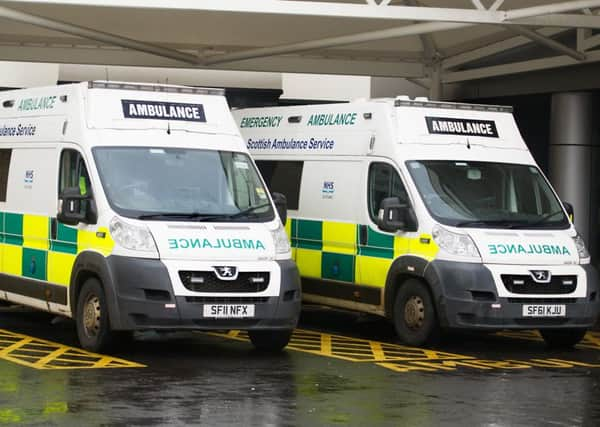BBC broke OFCOM rules after filming man in ambulance
This article contains affiliate links. We may earn a small commission on items purchased through this article, but that does not affect our editorial judgement.


An edition of Reporting Scotland showed footage of the man being cared for in an ambulance by paramedics in a report on alcohol-related medical call-outs.
He had fallen in Glasgow city centre after an office Christmas party and the report, by BBC health correspondent Eleanor Bradford, also showed his wife arriving on the scene.
Advertisement
Hide AdAdvertisement
Hide AdAlthough the couple’s faces were obscured, they said they could be easily identified in the programme and complained to media watchdog Ofcom that they had not given consent for the footage to be shown.
The regulator launched an investigation and have now found that the BBC breached the privacy of the man, known as Mr F.
In a written ruling, Ofcom said: “Ofcom accepted that Mr F was filmed openly by the programme makers and that he was informed that he was being filmed by the BBC.
“However, we noted the sensitive nature of the footage obtained and the fact Mr F was filmed whilst injured, not only in a public place (i.e. on the street outside the public house), but also as he received medical treatment in an ambulance.
“We also noted that Mr F provided personal information about himself (notably, his full name, date of birth, home address and medical history).
“We considered that, in these circumstances, in which he was receiving medical treatment, a particularly sensitive situation, he
had a heightened legitimate expectation of privacy with regard to the obtaining of the footage and information relating to him.
Advertisement
Hide AdAdvertisement
Hide Ad“We also noted that during the unedited footage Mr F repeatedly indicated that he did not want to be filmed or for the footage to be subsequently broadcast.
“Given this, it was clear to Ofcom that Mr F’s consent was neither sought, nor was it given by Mr F, during the filming of the incident.
“We also observed that, as set out above, much of the filming that took place was of Mr F receiving medical treatment in the ambulance, a particularly sensitive situation, and that despite his repeated indications that he did not want to be filmed, the crew continued to do so, which appeared to cause Mr F further agitation and confusion.
“In light of these circumstances, we considered that the means of obtaining the relevant material was not proportionate.
“Having taken all the above factors into consideration, Ofcom considered that, on balance, Mr and Mrs F’s legitimate expectation of privacy in relation to the filming of them outweighed the broadcaster’s right to freedom of expression and the public interest in obtaining the footage.
“Therefore, we found that Mr and Mrs F’s privacy in connection with the obtaining of the material included in the programme
was unwarrantably infringed.”
The man was referred to in the report as a “civil servant in his fifties” but at one point his wife could be heard on camera saying his first name.
The BBC argued that the report was in the public interest and that they had taken reasonable steps to protect the man’s identity.
Advertisement
Hide AdAdvertisement
Hide AdThe Reporting Scotland programme was broadcast on December 15 last year and was presented by Jackie Bird.
The report which featured the man focused on the impact alcohol-related call outs made over the weekend had on the Scottish Ambulance Service in Glasgow and the delays these call-outs caused to the services’ response to “genuine emergency” incidents.
A BBC Scotland spokesman said: “We accept the ruling and believe, as does Ofcom, that there was genuine public interest in making the programme.
“The ruling states that ‘it was clear that the programme’s purpose was to show the burden placed on emergency services by avoidable alcohol-related call-outs’, though Ofcom felt that more could have been done to disguise the identities of those featured.”
DOWNLOAD THE SCOTSMAN APP ON ITUNES OR GOOGLE PLAY